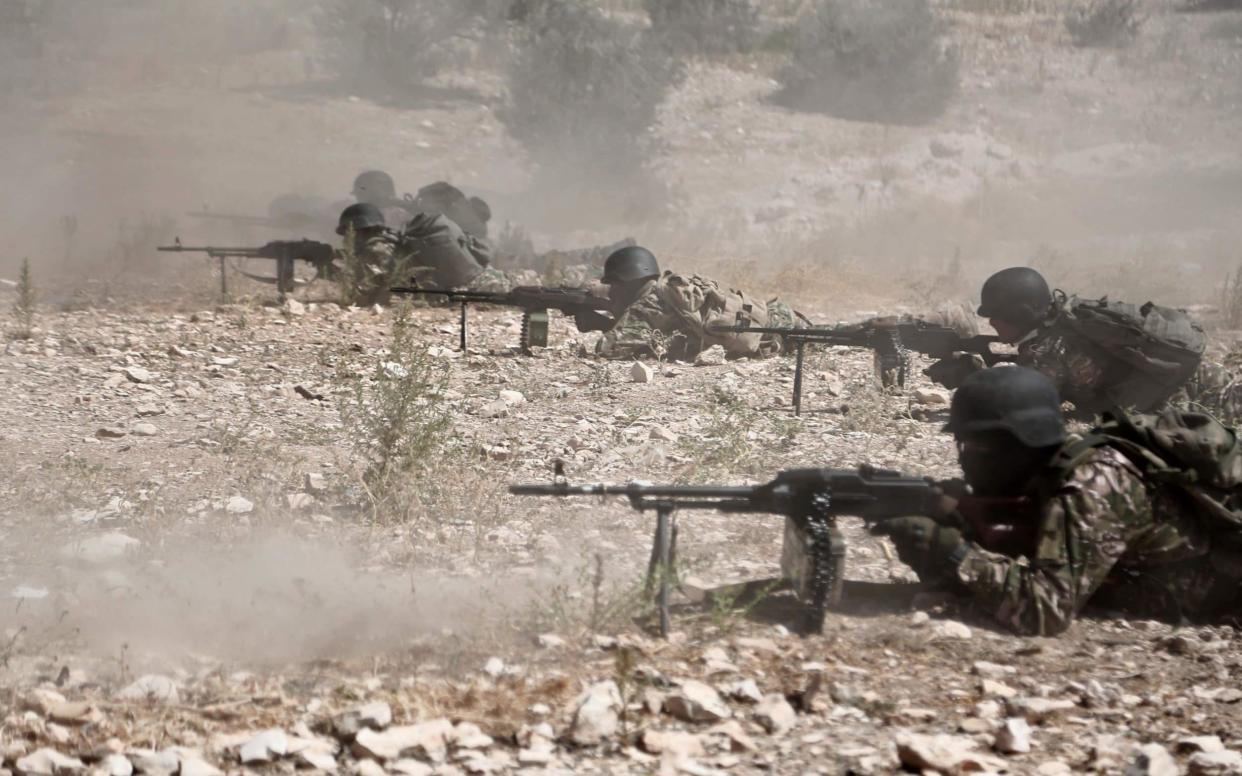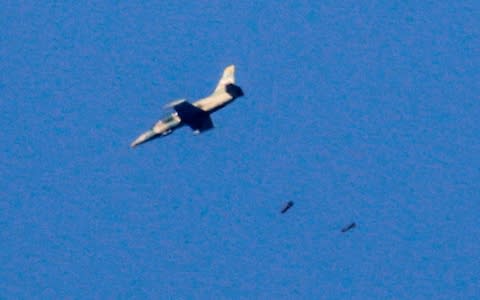Turkey looks for diplomatic solution to avoid 'massacre' in Syria's Idlib

Turkey and the US said they were racing find a diplomatic solution to avoid “a serious massacre” in Syria’s Idlib province ahead of a critical summit on Friday which is likely to decide the fate of the rebel stronghold.
The world had been bracing for weeks for Assad regime forces to attack Idlib, where around 2.5 million civilians are living in opposition-held territory with no clear route of escape if fighting escalates.
Regime troops shelled rebel positions on Wednesday, a day after Russian warplanes ended weeks of calm with a barrage of airstrikes. At least 13 civilians were killed in the Russian bombing, according to monitors.
The future of Idlib is likely to be determined at a summit on Friday, when the leaders of Russia, Iran and Turkey will gather in Tehran to discuss the future of Syria.
Recep Tayyip Erdogan, the Turkish president, said Wednesday that he hoped to use the meeting to reach a deal and prevent an all-out attack on the border province.
"God willing we will succeed in averting the extreme actions of the regime there by getting a positive result from the Tehran summit," Mr Erdogan said.
Turkey is worried that an attack on Idlib will trigger a mass exodus of refugees fleeing towards the Turkish border. Turkey already shelters 3.5 million Syrians and Mr Erdogan is under domestic pressure not to take in anymore.

"3.5 million people live there. God forbid, it is again Turkey where those people will flee in case of a disaster," Mr Erdogan said.
Activists in Idlib said Turkey had increased its forces at a number of small outposts in the province. Civilians have gathered near the outposts in the hope that Russia will avoid bombing them.
Mike Pompeo, the US secretary of state, also said he was pushing for a diplomatic solution. “We are hoping that this can be resolved diplomatically,” he said.
Mr Pompeo said he shared Russia’s worries about al-Qaeda-linked terrorist groups based in Idlib but said that a full-scale attack was not the way to deal with the situation.
“We share their concern about terrorism emanating from northern, northwest Syria,” he said. “It is not the way to do that to put the lives of all these innocent civilians at risk and create a humanitarian crisis.”
Russia has so far made no commitment not to launch an all-out attack but has also pointed to the Friday summit as critical for deciding the future of Idlib.

“I think the situation from a military point of view will become clearer after, among other things, the leaders of the three guarantor states hold talks on Friday,” said Sergei Ryabkov, Russia’s deputy foreign minister.
A Syrian regime source said Damascus was open “until the very last moment” to a compromise that would avoid the need for an attack.
Conquering Idlib would be a major victory for Syrian leader Bashar al-Assad on his quest to take back all of Syria’s territory and crush the rebellion which broke out against him in 2011.
The US has repeatedly warned the Syrian regime not to use chemical weapons during its attack on Idlib, saying that any use of chemical weapons will lead to Western strikes.
Western government believe Assad could be tempted to use nerve agent to try to break the morale of rebel and jihadist fighters in Idlib as well as the civilian population there.
Russia has countered by claiming that Syrian rebel groups might “stage” a chemical weapons attack and blame it on the regime, in order to induce Western strikes against Assad’s forces.
James Mattis, the US defence secretary, said the US has “zero intelligence” that indicated any of the rebel factions have the ability to carry out a chemical attack.

